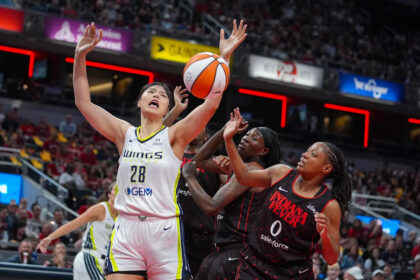After months of campaigning, including a notable ‘strike’ when horse racing events moved to London to amplify their demands, and intervention by a former prime minister, Britain’s second-largest spectator sport is soon to learn if its efforts have prevented a rise in the horse racing betting tax. While Wednesday’s races at Wetherby, Market Rasen, and Southwell proceed as usual, the main event is at Westminster at 12:30 pm, where Rachel Reeves will deliver her much-anticipated budget speech.
One certainty is that gambling taxes will not be removed because the government faces a significant budget gap, and the UK’s gambling industry, which generated a gross gambling yield of £15.6 billion in 2023-24, remains a prime revenue source. The key issue for horse racing is how any gambling tax increase will be allocated between the General Betting Duty (GBD) on profits from betting on horse racing and other sports, and the higher-taxed fixed margin gaming products like slot machines and casino games, both online and in shops.
Currently, the GBD stands at 15% of an operator’s gross profits, while the Remote Gaming Duty (RGD) on the expanding online gaming sector is 21%. The sport’s fate hinges largely on whether this 6% differential is preserved, lowered, or eliminated, following Treasury proposals to harmonize the two rates. The British Horseracing Authority’s research indicated that harmonizing the tax at 21% would cost horse racing £66 million annually, £330 million over five years, and risk almost 3,000 jobs in the first year.
The campaign against harmonization emphasized horse racing’s economic significance, especially in rural areas, and warned of the consequences of draining tens of millions from an ecosystem supporting 85,000 jobs and local taxation. Meanwhile, high-rate gaming products, known for higher harm and limited economic benefits, have been targeted for tax hikes, with horse trainers’ federation CEO Paul Johnson backing a proposed 50% increase in RGD by the Social Market Foundation.
A pivotal moment came with former Prime Minister Gordon Brown’s July intervention, backing calls for higher gambling taxes while advocating protections for horse racing. This shifted attention from tax harmonization to prioritizing gaming duties, with recent reports suggesting the Chancellor will boost gaming taxes but only slightly increase online sports betting tax, exempting horse racing from higher rates.
For horse racing, this outcome is likely the best achievable, fueling hopeful anticipation that the campaign’s message has resonated. One senior source likened the chances of a favorable budget result to about 1-in-4.
This effort marks a potential turning point, signaling the end of the UK gambling industry’s two-decade expansion driven by gaming. The 2005 Gambling Act, enacted when Brown was Chancellor, allowed high-stakes roulette in betting shops but underestimated online gambling’s rise. It took years of struggle to reduce maximum bets from £100 to £2.
Despite opposition and warnings from industry groups like the Betting and Gaming Council (BGC) that higher taxes could harm betting shops and, by extension, horse racing through reduced sponsorship and promotions, recent trends show resilience in betting shops. More importantly, cutting investment in horse racing in response to other areas’ profit drops makes little business sense, as the sector has seen improved margins.
Horse racing has long been advised to distance itself from the gaming sector in anticipation of an industry downturn. If the Prime Minister’s decision aligns with current leaks, horse racing has narrowly avoided the brunt of tax increases and may maintain its economic viability.
Fan Take: This news is vital for horse racing enthusiasts as it preserves the sport’s financial foundation and jobs, particularly in rural communities. Avoiding a steep tax hike means horse racing can continue to thrive without being overshadowed by the fast-growing, higher-taxed gaming industry, securing its future in a challenging gambling landscape.



